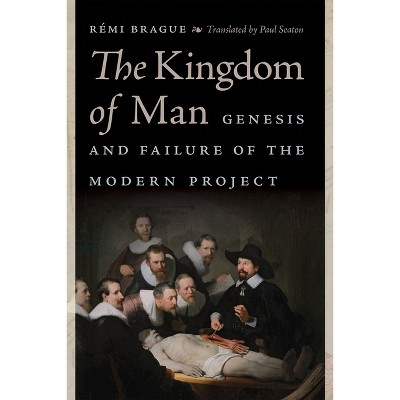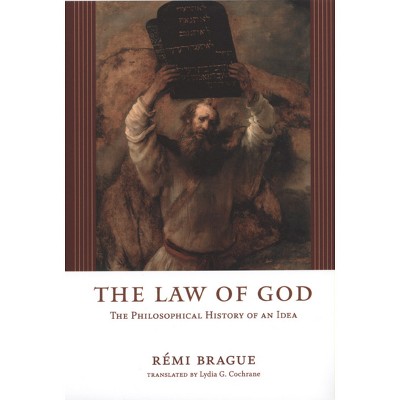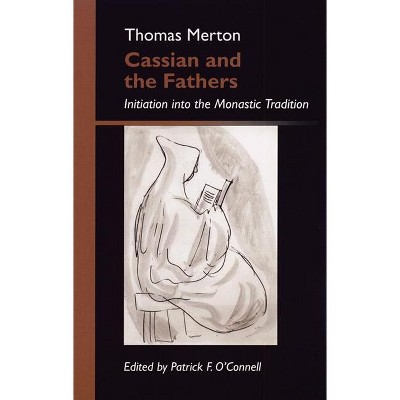Sponsored

The Wisdom of the World - by Rémi Brague (Paperback)
$32.00
In Stock
Eligible for registries and wish lists
Sponsored
About this item
Highlights
- When the ancient Greeks looked up into the heavens, they saw not just sun and moon, stars and planets, but a complete, coherent universe, a model of the Good that could serve as a guide to a better life.
- About the Author: Rémi Brague is a professor of philosophy at the Université de Paris I-Sorbonne and at the University of Munich.
- 306 Pages
- Philosophy, General
Description
Book Synopsis
When the ancient Greeks looked up into the heavens, they saw not just sun and moon, stars and planets, but a complete, coherent universe, a model of the Good that could serve as a guide to a better life. How this view of the world came to be, and how we lost it (or turned away from it) on the way to becoming modern, make for a fascinating story, told in a highly accessible manner by Rémi Brague in this wide-ranging cultural history. Before the Greeks, people thought human action was required to maintain the order of the universe and so conducted rituals and sacrifices to renew and restore it. But beginning with the Hellenic Age, the universe came to be seen as existing quite apart from human action and possessing, therefore, a kind of wisdom that humanity did not. Wearing his remarkable erudition lightly, Brague traces the many ways this universal wisdom has been interpreted over the centuries, from the time of ancient Egypt to the modern era. Socratic and Muslim philosophers, Christian theologians and Jewish Kabbalists all believed that questions about the workings of the world and the meaning of life were closely intertwined and that an understanding of cosmology was crucial to making sense of human ethics. Exploring the fate of this concept in the modern day, Brague shows how modernity stripped the universe of its sacred and philosophical wisdom, transforming it into an ethically indifferent entity that no longer serves as a model for human morality. Encyclopedic and yet intimate, The Wisdom of the World offers the best sort of history: broad, learned, and completely compelling. Brague opens a window onto systems of thought radically different from our own.From the Back Cover
When the ancient Greeks looked up into the heavens, they saw not just sun and moon, stars and planets, but a complete, coherent universe, a model of the Good that could serve as a guide to a better life. How this view of the world came to be, and how we lost it (or turned away from it) on the way to becoming modern, make for a fascinating story, told in a highly accessible manner by Rémi Brague in this wide-ranging cultural history. Before the Greeks, people thought human action was required to maintain the order of the universe and so conducted rituals and sacrifices to renew and restore it. But beginning with the Hellenic Age, the universe came to be seen as existing quite apart from human action and possessing, therefore, a kind of wisdom that humanity did not. Wearing his remarkable erudition lightly, Brague traces the many ways this universal wisdom has been interpreted over the centuries, from the time of ancient Egypt to the modern era. Socratic and Muslim philosophers, Christian theologians and Jewish Kabbalists all believed that questions about the workings of the world and the meaning of life were closely intertwined and that an understanding of cosmology was crucial to making sense of human ethics. Exploring the fate of this concept in the modern day, Brague shows how modernity stripped the universe of its sacred and philosophical wisdom, transforming it into an ethically indifferent entity that no longer serves as a model for human morality. Encyclopedic and yet intimate, The Wisdom of the World offers the best sort of history: broad, learned, and completely compelling. Brague opens a window onto systems of thought radically different from our own.About the Author
Rémi Brague is a professor of philosophy at the Université de Paris I-Sorbonne and at the University of Munich. He has also taught at Boston University. Brague is the author of four previous books, including, most recently, Eccentric Culture: A Theory of Western Civilization. Teresa Lavender Fagan has translated more than a dozen books, including Jean-Claude Schmitt's Ghosts in the Middle Ages and Jean Bottéro et al.'s Ancestors of the West, both published by the University of Chicago Press.Dimensions (Overall): 9.04 Inches (H) x 6.42 Inches (W) x .71 Inches (D)
Weight: .93 Pounds
Suggested Age: 22 Years and Up
Number of Pages: 306
Genre: Philosophy
Sub-Genre: General
Publisher: University of Chicago Press
Format: Paperback
Author: Rémi Brague
Language: English
Street Date: November 1, 2004
TCIN: 1006090863
UPC: 9780226070773
Item Number (DPCI): 247-19-6061
Origin: Made in the USA or Imported
If the item details aren’t accurate or complete, we want to know about it.
Shipping details
Estimated ship dimensions: 0.71 inches length x 6.42 inches width x 9.04 inches height
Estimated ship weight: 0.93 pounds
We regret that this item cannot be shipped to PO Boxes.
This item cannot be shipped to the following locations: American Samoa (see also separate entry under AS), Guam (see also separate entry under GU), Northern Mariana Islands, Puerto Rico (see also separate entry under PR), United States Minor Outlying Islands, Virgin Islands, U.S., APO/FPO
Return details
This item can be returned to any Target store or Target.com.
This item must be returned within 90 days of the date it was purchased in store, shipped, delivered by a Shipt shopper, or made ready for pickup.
See the return policy for complete information.











